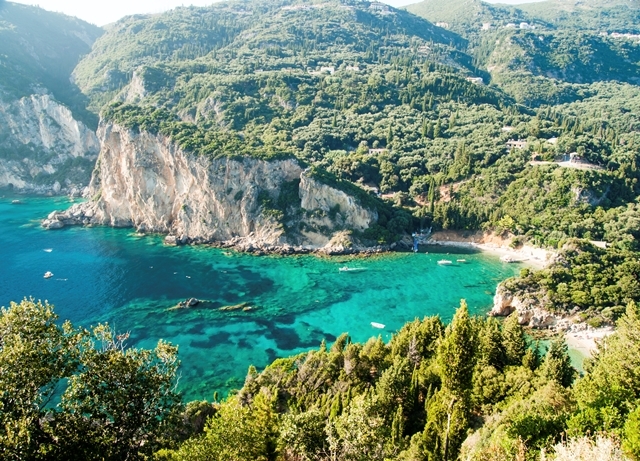
Nearly four million Brits go to Greece every year, which means the UK is one of its most important tourism markets. All arrivals have to present a negative Covid test taken within a 72-hour window, while arrivals from the UK have to undergo a rapid test on arrival as well.
A firm favourite with travellers, Greece is set to become a prime holiday destination this summer, after its government announced it would welcome all vaccinated tourists from May.
With its superb selection of beaches and villages where life gently unravels at a time-stopped pace, the country ticks all the boxes for a restorative post-pandemic break.
But where to go? Here are some of the most alluring spots.
Mykonos
A party isle popular with bohemians since the 1960s, this island in the Cyclades group was experiencing a renaissance in pre-Covid days, as celebrities and super yacht-owners filled clubs and bars.
Beaches such as Paradise and Super Paradise are magnets for hedonists, but there are more sedate spots. Of the 25 beaches, family favourite Elia has the longest white sand sweep; Platis Gialos and Kalafatis are recommended for water sports.
Hora (Mykonos Town) is a maze of narrow bougainvillea-draped streets, packed with boutique shops, cafes, galleries and churches. The Tourliani Monastery in the hilly interior is a calm contrast to the busy coast.
Santorini
Sunsets are the attraction on this Greek island, a flooded caldera carved by a volcanic eruption almost 3,500 years ago.
Tourists gather in the village of Oia to witness the spectacle, as a sherbet pink ball silhouettes windmills and domes before sliding into the Aegean Sea.
Take a boat trip to the Nea Kameni and hot springs at Palia Kameni, or head inland to the village of Pyrgos to enjoy the slow pace of local life.
While cruise ships and Instagrammers flock to the north, the opposite end of the island is still peaceful and sleepy.
Peloponnese
Some of the country’s most important archaeological sites can be found in this scenic mainland peninsula. The birthplace of the Olympic Games in 776BC, Olympia features a temple of Zeus (to whom the games were dedicated), the ancient stadium, and a museum explaining the story.
At Epidaurus, tourists can wander around a theatre famed for its acoustics, where performances are staged throughout the summer. Mycenae, with its giant stone walls, is famous for its connections to the Trojan War, while Mystras is decorated with Byzantine churches.
Aside from historical sites, beautiful beaches and seaside towns are the attraction.
Halkidiki coast
Fingers of sandy beaches are backed by forests along the Halkidiki coastline in northern Greece, where there are three mini peninsulas to discover.
While Kassandra is populated by tourist resorts, Sithonia is far less commercial and attracts adventurers to its traditional villages, Blue Flag beaches and secluded coves. But Gerakini and Psakoudia beaches both have a decent selection of tavernas and sun loungers for those who don’t like to be too cut off.
The least developed finger of land is Athos, where a holy mountain is the spiritual capital of the Orthodox Christian world and home to a traditional Byzantine monastic community.
Corfu
One of the first islands to establish a tourism industry, Corfu is perennially popular.
Influenced by the Venetians, French and English, baroque and Renaissance architecture characterises the Old Town, a Unesco world heritage site. Admire grand palaces and impressive fortresses, then dive into cobblestone alleys so narrow, residents can reach out and shake hands.
One of the best beaches is Mirtiotissa, on the west coast between the villages of Pelekas and Vatos. Secluded by rugged, steep cliffs, its beauty has been applauded by poets and writers – but privacy has also made it a favourite for nude bathers.
Factfile:
Remember, while it’s OK to plan ahead, due to the pandemic it is currently illegal to travel abroad on holiday. For the very latest guidance visit gov.uk and gov.scot

Enjoy the convenience of having The Sunday Post delivered as a digital ePaper straight to your smartphone, tablet or computer.
Subscribe for only £5.49 a month and enjoy all the benefits of the printed paper as a digital replica.
Subscribe